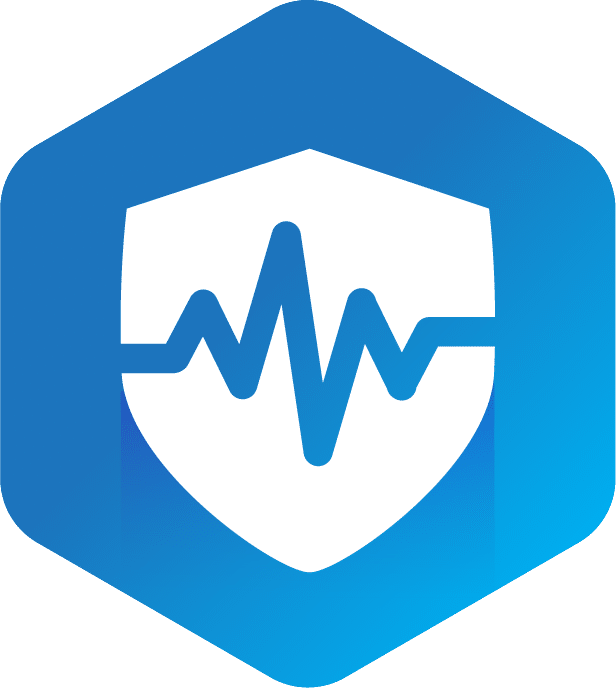Have you ever wondered why your children have to sign permission for you to access their medical files?
It may seem frustrating, but there are reasons behind this requirement. The HIPAA Privacy Rule, which governs the release of medical information, generally grants parents the right to access their children’s medical records as their personal representative. However, there are exceptions to this rule.
For instance, if you consent to care without requiring parental consent or receive care under the direction of a court-appointed person, your parents’ access may be limited. Additionally, healthcare providers may choose not to treat a parent as a personal representative if they have concerns about abuse or neglect. State laws also play a role in determining parental rights regarding access to medical records.
Understanding these factors can help shed light on why you need to sign permission for your parents to see your files and ensure that your privacy and well-being are protected.
Did you know that even though parents are generally allowed access to their children’s medical records under the HIPAA Privacy Rule, there are certain situations where parental access is limited?
When it comes to minors who are covered under their parents’ medical insurance, they may be required to sign permission for their parents to see their files. This is because the HIPAA Privacy Rule recognizes minors have the right to consent to their healthcare in certain circumstances.
If a minor consents to care and the parent’s consent is not required by state or other applicable law, then the minor becomes the personal representative and has control over who can access their medical records.
Additionally, if a minor receives emergency medical care without parental consent, the parent can still obtain information about the child’s treatment and condition as long as it is not believed to be in the best interest of the child due to abuse or neglect concerns.
Exceptions to parental access include situations where the minor consents to care without requiring parental permission, when the court directs or appoints care for the minor, and when the parent agrees to a confidential relationship between the minor and healthcare provider. In these exceptional cases, parental access to their child’s medical records may be denied if state or other applicable law prohibits it. However, if there are no specific laws restricting parental access, healthcare providers can use their professional judgment to grant or deny access.
To help you understand this better, here is a table summarizing when parents have access to their minor child’s health records under HIPAA compliance:
| Situation | Parental Access |
|---|---|
| Minor consents without requiring parental permission | No |
| Court-directed or appointed care for the minor | No |
| Parent agrees to a confidential relationship with the healthcare provider | No |
| State or other applicable law requires or permits parental access | Yes |
| State or other applicable law prohibits parental access | No |
It’s important for parents and minors alike to be aware of these exceptions in order to navigate their rights regarding accessing health information.
Parents can still access their child’s medical records in emergencies under HIPAA regulations. This means that even if a child receives emergency medical care without the parent’s consent, the parent has the right to obtain all information about the child’s treatment and condition.
However, there are certain circumstances where parental access may be restricted. For example, if the parent doesn’t have authority to act for the child or if state or other applicable law expressly prohibits such access. Additionally, a covered entity may withhold information if they believe it’s not in the child’s best interest due to reasonable concerns of abuse or neglect by the parent.
It’s important to note that HIPAA defers to state law in determining parental rights and the age of majority for making healthcare decisions on behalf of minors.
State laws play a crucial role in determining the extent of parental rights when it comes to accessing their children’s healthcare information. Under the HIPAA Privacy Rule, parents generally have the right to access their children’s medical records as their personal representative. However, state laws can vary and may impose additional requirements or restrictions on parental access to health information.
It is important to note that the Department of Health and Human Services defers to state law regarding parental rights and the age of majority for making healthcare decisions for minors. The purpose of these state laws is to balance the need for medical privacy with ensuring appropriate access to health information for parents.
By requiring minors covered under their parents’ medical insurance to sign permission for their parents to see their files, state laws aim to protect the minor’s confidentiality and autonomy while recognizing the importance of parental involvement in their child’s healthcare decisions.
Understanding these state laws and regulations is essential in navigating access to health information for minors covered under their parents’ insurance plans while maintaining compliance with HIPAA regulations.
You have the power to trust your healthcare provider’s professional judgment when it comes to accessing your child’s medical information. While you may wonder why minors, who are covered under their parents’ medical insurance, have to sign permission for their parents to see their files, it is important to understand that healthcare providers must balance parents’ rights with the child’s privacy and well-being. In certain situations, such as when there are concerns about domestic violence, abuse or neglect, or if disclosing information could potentially harm the child, healthcare providers may choose not to treat a parent as a personal representative. This decision is made in the best interest of the child’s safety and protection. By respecting and trusting your healthcare provider’s professional judgment, you can ensure that your child receives appropriate care while also protecting their privacy.
| Parents | Health Insurance Coverage | Minors |
|---|---|---|
| – Have legal authority over minor children | – Provide health insurance coverage for minors | – Depend on parents for consent in most cases |
This table illustrates how parents have legal authority over minor children, including decisions regarding health insurance coverage and giving consent for medical treatment. It emphasizes that minors often rely on their parents for permission related to their medical records and treatment decisions.
Who is considered a minor under HIPAA?
A minor refers to an individual who is under the age of 18.
What is a medical record in regards to HIPAA?
A medical record is a collection of health information about an individual, including medical history, treatments received, and health conditions.
What is protected health information (PHI)?
Protected health information (PHI) refers to any health information that can be linked to a specific individual, such as medical records, test results, and insurance claims.
Can parents or guardians access their child’s medical records?
Parents or guardians generally have the right to access their child’s medical records under HIPAA, unless state law provides more restrictive access.
What is the HIPAA Privacy Rule?
The HIPAA Privacy Rule is a regulation that sets national standards for the protection of PHI by healthcare providers and other covered entities.
What is a personal representative in regards to HIPAA?
A personal representative is an individual authorized to make healthcare decisions on behalf of a minor child or someone who lacks decision-making capacity.
Can minors access their medical records without parental consent?
In most cases, a minor may not access their medical records without the consent of a parent or guardian. However, there are exceptions under state laws for certain types of medical care.
What happens when a minor turns 18 regarding HIPAA privacy?
When minors turn 18, they become adults and have the right to privacy and control over their health information. Parents no longer have automatic access to their adult child’s medical records without appropriate consent.
How does HIPAA address sensitive health information, such as substance abuse and mental health?
HIPAA protects sensitive health information, including substance abuse and mental health records. Special consent requirements may apply in certain situations.
So, now you understand why minors, covered under their parents’ medical insurance, must sign permission for their parents to see their files.
Parental access to a minor’s medical records is generally allowed under the HIPAA Privacy Rule, but there are exceptions. These exceptions include situations where the minor consents to care without parental consent or when the parent and minor agree to a confidential relationship with the healthcare provider.
State laws and the healthcare provider’s professional judgment also play a role in determining parental access.

